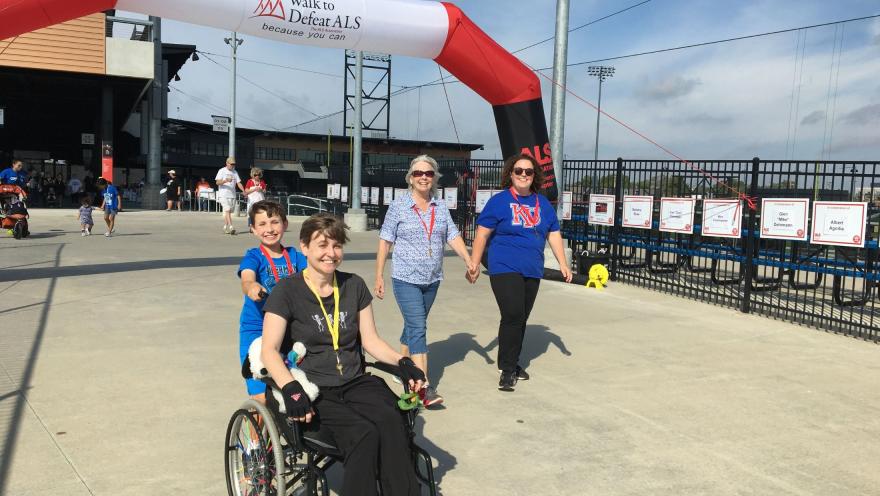Writing has long been a way for people to make sense of the world around them. Sometimes people write for others to see, sometimes they write just for themselves. But regardless of the audience, the human desire to express hopes and fears, successes and struggles, has been around forever.
For Amanda Howard, writing had always been part of her professional life working in communications and public relations. But even beyond that, she used writing when she faced stress or challenges in her life. "Writing has always helped me process things," she said.
And for Amanda, 2022 brought an awful lot of things that needed processing. In April, she started noticing a “weird” weakness in her right leg, just as her personal life was turned upside down by marital problems that would lead to her divorce in October. All during this emotional upheaval, she was seeing doctor-after-doctor for procedure-after-procedure—including, as she said “5 MRIs, an x-ray, 2 EMGs, a spinal tap, and a partridge in a pear tree”—finally leading to her diagnosis of ALS in December. In early 2023, she left Georgia and went back to Kansas to move in with her mom.
Her experiences that year were frankly more than enough for anyone to process. So Amanda did what she’d done before, she started writing about it. She started a blog.

Amanda blogs about topics as varied as food (“I am enjoying the eating. All the carbs! All the sweets! Therapy cake! Doctor-prescribed pizza!”) to participating in clinical trials (“Mom and I were there for three hours, and there was much poking and prodding and testing.”). And for those of us on the outside, she’s delved into the not so insignificant challenge of ‘what do I say?’ to someone living with ALS.
A friend of Amanda who survived cancer dubbed this “Platitude Bingo,” where the person on the receiving end of the platitude gives themselves a point for every “really Hallmark channel thing” they hear, like ‘You’re so strong’ or ‘You’re an inspiration.’ Amanda notes that this is understandable; a basic instinct to want to make the sad person feel better. “I know people mean well, and this isn’t to make fun of the well-wishers. It’s more a coping mechanism for those of us on the receiving end.”
So what should you say? Amanda has her own suggestions—express shock and sadness when appropriate, and try and treat the person like you always have before. “If they talk about their worries and feelings, listen without trying to immediately assign those worries and feelings into problems to be conquered,” Amanda said.
Amanda hopes these sorts of insights are useful to both her regular readers (as she notes, her dad comments on every post) as well as the larger ALS community. “I would hope the blog could help somebody on the same journey have an idea of what's coming,” she said.
But even as she’s sharing her journey far and wide, her blogging has continued to educate one very important person: herself. “I've learned that I'm more resilient than I thought,” Amanda said. “(T)he blog has helped me process everything that happened, and helped me to react with humor when I can. It's been a good outlet, and a good way to reflect.”
Special thanks to Amanda for allowing us to share her story with the ALS community. If you have a story you’d like to share, let us know HERE.
To continue to follow stories about people living with ALS in the community and learn more about the disease, subscribe to our blog or follow us HERE.


Join the conversation. Please comment below.